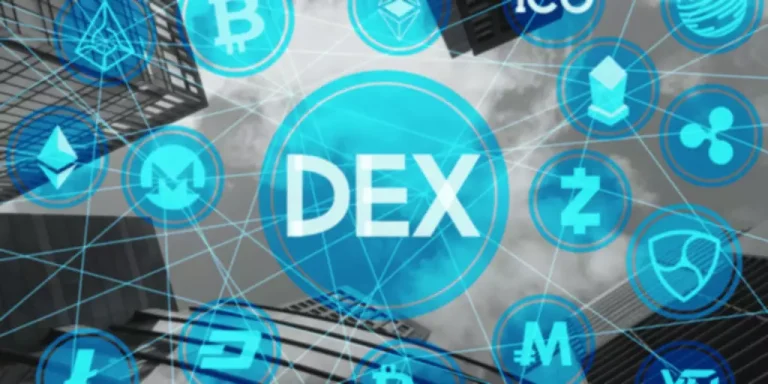In May 2022, the favored Robinhood buying and selling app announced it was engaged on a non-custodial pockets allowing customers to store and commerce cryptocurrencies. A non-custodial wallet is simply a piece of software on your own computer or cellphone that places you in full management of your cryptocurrency holdings. You hold your personal non-public keys, which suggests nobody else is ready to make a transaction on your behalf. Outsourcing your pockets custody means that you are making a reward of entry to your own set of private keys.

The $90 million Liquid exchange hack, for instance, demonstrated the vulnerability of exchange-hosted custodial wallets. Since there is not any non-public key or secret restoration phrase, restoration of a custodial pockets solely requires a username and password. If both is misplaced, the client can retrieve the account just by resetting the password. When we use a non-custodial wallet, we take sole duty for the safety of our assets.
Difference Between Custodial And Non-custodial Wallets
It’s attainable to lose our property if we lose the secret recovery phrase, give out the personal key, or are careless with device safety. However, as one becomes extra accustomed to the workings and advantages of non-custodial wallets, such apprehensions usually diminish, revealing the inherent benefits they maintain over traditional monetary mechanisms. The simplicity of custodial wallets, requiring minimal interplay with the blockchain or keys, makes them a most well-liked choice for newcomers. Their design prioritizes user-friendliness and accessibility, streamlining transactions and offering seamless integration with decentralized apps (dApps) and opportunities in staking or yield farming. If you’re using your individual hardware pockets, then it is completely non-custodial.

Custodial crypto wallets compliant with present regulatory regimes are normally safer than non-compliant wallets. Users can even go for custodial wallets that provide insurance coverage for theft or misuse of funds. Any crypto assets that aren’t getting used for buying and selling or transacting are finest stored offline in a non-custodial hardware wallet.
The Time Period “wallet” Is Used To Describe Hardware Or Software That Holds Cryptocurrencies
This guide shows you what unites and separates Bitcoin (BTC) and Solana (SOL), two of the main cryptocurrencies on the crypto market. MoonPay also makes it easy to sell crypto whenever you decide it is time to money out. Simply enter the quantity of the token you’d wish to promote and enter the major points where you want to obtain your funds. MoonPay’s widget provides a quick and easy way to buy Bitcoin, Ethereum, and more than 50 other cryptocurrencies. Custodial wallets also often have a more user-friendly interface so novices can navigate them quite easily.

By using a custodial wallet, we’re entrusting our funds to the crypto custodian. The custody of private keys by a 3rd party and the net nature of those wallets increase their vulnerability to cyber assaults, with important losses reported annually. Furthermore, there’s the chance of dropping funds to authorities seizure if the custodial service faces bankruptcy. Exchanges like Kucoin and Nash use technology just like the Lightning Network so as to give their users full control over their crypto belongings up till the purpose they want to make a promote order. It is likely that extra exchanges will supply this sort of safety upgrade over time, however for now, custodial wallets are nonetheless the usual for many exchanges.
Non-custodial crypto wallets give you complete management of your keys and due to this fact your funds. While some folks retailer massive amounts of crypto on trade accounts, many feel extra snug with a non-custodial wallet custodial vs non custodial wallet, which eliminates a third-party between you and your crypto. With a non-custodial pockets, you could have sole management of your private keys, which in flip management your cryptocurrency and show the funds are yours.
Custodial Vs Non-custodial Wallets: Key Differences
As most of you could have already guessed, non-custodial wallets don’t require any kind of third-party involvement like custodial wallets do. They don’t outsource to any establishment, so as a result, no establishment can refuse to complete transactions. In crypto terms, the keys serve the purpose of receiving inbound cryptocurrencies and handle the encryption of outbound transaction information.

This function is especially appealing to those who value privateness and wish to have interaction with the crypto ecosystem with out intermediaries. Non-custodial wallets come in varied forms, together with browser-based interfaces, software wallets that encrypt non-public keys on a tool’s onerous drive, and hardware wallets, which provide the very best security degree. Custodial wallet users can depend on the custodian to retrieve their password within the case of loss. For instance, a custodial crypto trade ought to recuperate a user’s funds because it holds custodial rights over the user’s personal key.
Crypto Arbitrage: Rationalization, Scanner And Bot
For those seeking a balance, some providers offer the flexibility to hyperlink a custodial account with applications that provide the benefits of non-custodial management without the duty for direct key safety. Moreover, custodial wallets serve as gateways to newer funding avenues like crypto ETFs and ETPs, attracting institutional investors with their simpler management and transaction processes. However, these choices typically come with greater fees and limited exposure to the vast array of cryptocurrencies and buying and selling pairs obtainable on exchanges. Furthermore, certain governments have completely banned the use of custodial wallets for finishing transactions for users in sure areas. In times of political unrest, this means that governments have extra energy to restrict movement of funds in custodial wallets.

Any public and private key pair can perform as a crypto pockets — even when written on a piece of paper out of your pocket book. If you favor not to take private accountability for your crypto, then you want to select to make use of a custodial pockets. If you’re not prepared to share your personal data with a centralized crypto change or broker, you do not have any selection in addition to a non-custodial pockets. In this post, we’ll compare custodial and non-custodial wallets and have a glance at the professionals and cons of each crypto storage technique.
With non-custodial wallets, personal keys are managed by wallet customers themselves they usually maintain full management over funds. Non-custodial wallets are important when interacting with decentralized exchanges like Uniswap or PancakeSwap. These instruments give customers full control over their personal keys, which suggests customers need to ensure they take efforts to secure their wallets and never lose their non-public keys.
- If you are someone who isn’t good with computers and is just excited about Bitcoin for its financial properties (the 21 million cap), then using a custodial pockets won’t be that massive of a deal.
- Users can have interaction instantly with decentralized purposes (dApps) and partake in the broader crypto ecosystem with out the necessity for middleman oversight.
- With non-custodial wallets, the non-public key remains in the palms of the person, which could turn into a disaster if this sensitive info is misplaced.
- Similarly, crypto wallets connect with the blockchain and allow us to manage our crypto belongings.
- With non-custodial wallets, nevertheless, customers have to be additional careful since losing one’s personal key means losing all their assets.
Users additionally have to belief that the custodian will maintain delicate data and data safe. This requires the custodian to invest in top-of-the-line safety measures and domesticate a powerful popularity to take care of person belief. Wallets are available a spread of choices, from bodily ‘hardware’ wallets to cellular applications that can be opened with just a click on. Crypto wallets are categorized into custodial and non-custodial options, and it’s additionally essential to grasp the distinction between each in phrases of selecting the best wallet for your needs. When diving into the world of cryptocurrency wallets, the crucial distinction between Custodial and Non-Custodial choices becomes evident. This differentiation primarily revolves across the custody of the personal key, an important aspect influencing safety, autonomy, and consumer experience.
What Wallet Do You Have To Choose?
The elimination of third events from the monetary system is a clear level of this technology and defined in the original Bitcoin white paper, which is why custodial wallets are generally referred to as Bitcoin banks. To take full benefit of cryptocurrency expertise, users should understand the variations between custodial and non-custodial wallets when selecting the best crypto wallet. Non-custodial wallets serve the purpose of guaranteeing the confidentiality of a consumer’s assets. However, that comes with the accountability of storing your private keys, which are the only way of accessing your account. Meanwhile, a personal secret is akin to the password used to access your digital assets. It additionally proves ownership over those belongings stored in the wallet, and is used to transfer cryptocurrencies out of the wallet.